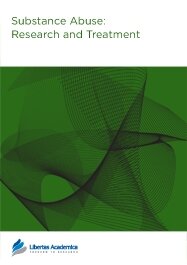

Publication Date: 11 Nov 2008
Journal: Substance Abuse: Research and Treatment

Department of Physiology and Biophysics and the Neuroscience Program, University of Colorado, Denver, School of Medicine, Aurora CO, USA.
Abstract
Nicotine, the addictive component of cigarette smoke has profound effects on the brain. Activation of its receptors by nicotine has complex consequences for network activity throughout the brain, potentially contributing to the addictive property of the drug. Nicotinic receptors have been implicated in psychiatric illnesses like schizophrenia and are also neuroprotective, potentially beneficial for neurodegenerative diseases. These effects of nicotine serve to emphasize the multifarious roles the drug, acting through multiple nicotinic acetylcholine receptor subtypes. The findings also remind us of the complexity of signaling mechanisms and stress the risks of unintended consequences of drugs designed to combat nicotine addiction.
PDF (912.33 KB PDF FORMAT)
RIS citation (ENDNOTE, REFERENCE MANAGER, PROCITE, REFWORKS)
BibTex citation (BIBDESK, LATEX)
This is the first time we published an article in Substance Abuse: Research and Treatment, and we were pleased to find that the publishing staff were extremely helpful in guiding our submission through all the hoops. More important they answered our concerns without delay and where necessary made changes in the page proofs in accord with our wishes. I have published upwards of 80 or 90 articles, chapters and edited volumes, and I have ...

All authors are surveyed after their articles are published. Authors are asked to rate their experience in a variety of areas, and their responses help us to monitor our performance. Presented here are their responses in some key areas. No 'poor' or 'very poor' responses were received; these are represented in the 'other' category.See Our Results
Copyright © 2013 Libertas Academica Ltd (except open access articles and accompanying metadata and supplementary files.)
FacebookGoogle+Twitter
PinterestTumblrYouTube